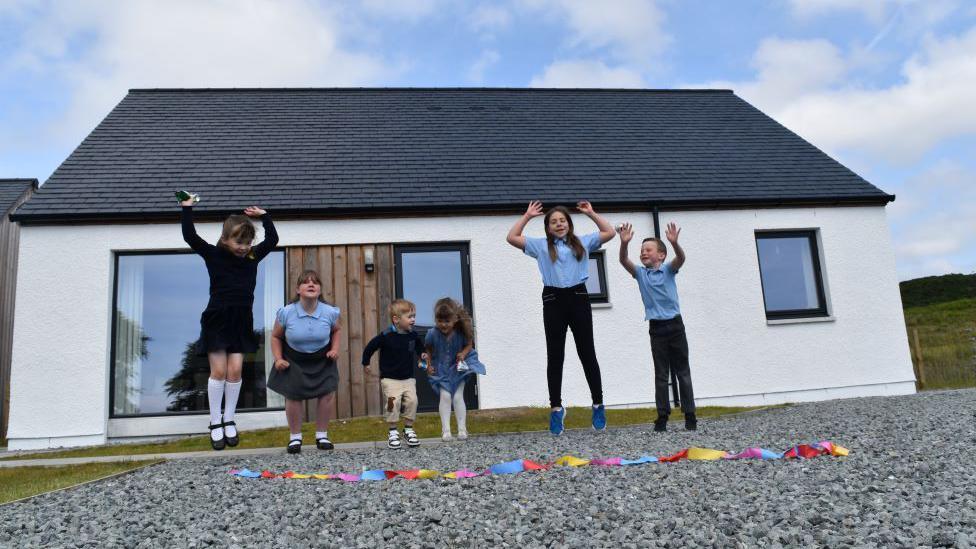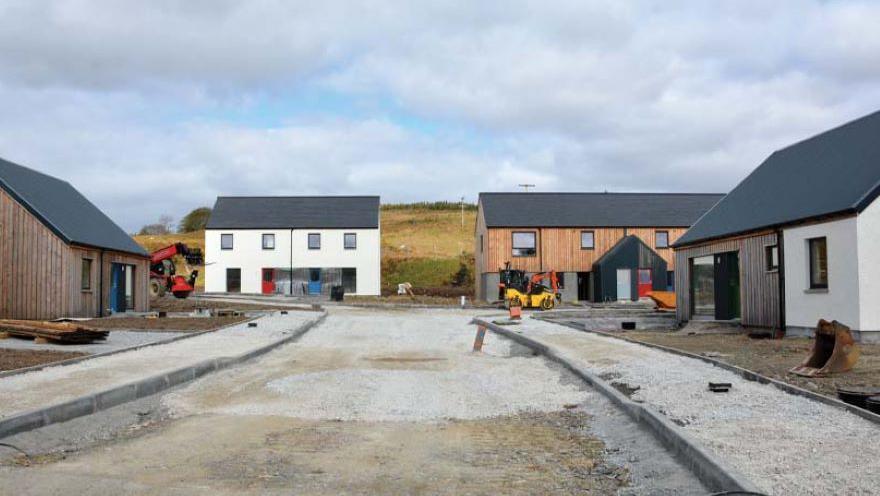Gaelic boost expected from island's first new village for a century

Families have already moved into two homes built earlier on the Kilbeg site
- Published
Skye's first village in more than 100 years could become home to Gaelic speakers and learners.
Applications have opened for 17 properties in Kilbeg in Sleat.
They have been built near Sabhal Mòr Ostaig - Scotland's National Centre for Gaelic Language and Culture - and the development is to have about 100 homes in total.
There is an expectation Kilbeg will attract Gaelic speakers, though the development is open to anyone who wants to live or work in the area.
Highland councillors gave planning permission for Kilbeg in 2011 and construction started about two years ago.
The first properties - two affordable rent-to-buy homes built for Communities Housing Trust - already have two young families living in them.
The 17 new affordable homes include six for social rent with Highland Council, eight properties for sale and three discounted Communities Housing Trust self-build plots.
Once completed, the village would have a mix of discounted rent and sale family homes, level-access and wheelchair accessible homes.
Nearby are a primary school and nursery, medical centre and GP practice and a café.
There is a community shop about two miles away in Armadale.

Applications have opened for 17 properties
Sabhal Mòr Ostaig is one of the Kilbeg project's partners.
Chairman Angus MacInnes said: "This new development is the perfect place to share the Gaelic language and culture across generations and it aligns closely with Sabhal Mòr Ostaig’s mission to promote the language through immersion, world-class education, research and cultural opportunities."
Communities Housing Trust chief executive Ronnie MacRae described Kilbeg as a ground-breaking community-led project.
He said: "The development in Kilbeg is unique in Scotland, in that it will provide a model for a mix of ages and tenures, providing opportunities for older people and younger families to support each other which also takes into account the importance of culture and heritage.
"Repopulating and regenerating the area in this way makes sense and helps to ensure long-term future sustainability of the community."
The development has received public money including from the Scottish government’s Rural and Islands Housing Fund, European Regional Development Fund and Highlands and Islands Enterprise.

Sabhal Mòr Ostaig marked its 50th anniversary last year.
In 2022-23, it had a record 1,600 student enrolments.
The number of people using Gaelic has increased across Scotland despite a decline in the language's heartland, according to the latest census data.
Experts said an increase in Gaelic medium education (GME) accounted for the rise.
However, the data suggested Gaelic was now a minority language in the Western Isles.
In 2011, 52% reported speaking Gaelic while the figure in 2022 was 45%.
Related topics
- Published21 May 2024

- Published14 December 2022
